This is 67: "Salty Crone" Prajna O'Hara Responds to The Oldster Magazine Questionnaire
"I am a woman with scars and wrinkles—each line tells a story of how I came to occupy myself as 'the Salty Crone.' And there’s more to be revealed."
From the time I was 10, I’ve been obsessed with what it means to grow older. I’m curious about what it means to others, of all ages, and so I invite them to take “The Oldster Magazine Questionnaire.”
Here, healer, author, and “Salty Crone” responds. -Sari Botton
Prajna O’Hara is the author of Edge of Grace: Fierce Awakenings to Love. She is a graduate of the Boston Theological Consortium with a long-term focus on Jungian psychology, feminist studies, women archetypes, and sacred drama. A retired Hakomi therapist, Kripalu Center for Yoga and Health teacher, and minister to women in prisons (of all kinds). She is a medicine woman trained in three Indigenous traditions, offering retreats internationally. She is also an award-winning grant writer, chef, and long-distance swimmer. Prajna enjoys an abundant crone life in Santa Cruz, California with her three adult daughters and their Labrador service dog, Woody. You may learn more on her website. She publishes the newsletter .
—
How old are you?
67.
Is there another age you associate with yourself in your mind? If so, what is it? And why, do you think?
Definitively age 37. A sense of longing I lived with all my life felt satisfied.
I was baptized into patriarchal religion, God through man as the expected path to follow, yet I felt spiritually exiled—because I was girl. This haunted me. I unconsciously internalized self-betrayal, an unworthiness similar to female role models, stationed as property of men.
Around age 37, after years of self-denial, addiction, and looking for love in all the wrong places, I had a series of epiphanies that culminated in birthing my first daughter. An epic home birth uncovered a natural intelligence, connection, and a coming home to myself—the one I was seeking.
I arrived to a state of bliss, sober for 16 years, financially independent, and untangled from the patriarchal religion that stole my innocence and injured my feminine instincts. It was an explosive initiation to embodying who I am as a woman—a mystery that deepens as I grow older—happy, confident, and glowing with possibilities.
Having spent most of my life productive but contained, I’ve become lighter, uncensored, and unapologetically questioning. A council of women dubbed me “the Salty Crone,” and the name stuck. I like to guffaw and goof off in the least likely places—like the clothing-optional community garden, especially after I come out of the cold plunge. Younger women call me a 'badass.' I kind of like that.
Do you feel old for your age? Young for your age? Just right? Are you in step with your peers?
I’m comfortable in my skin and don’t lose sleep over sagging breasts. I find deep lines fascinating. I’m very alive, usually attuned to the cyclical seasons of a woman’s life—of doing and solitude, of leaving and staying, of questing and resting, of creating and incubating.
I never married or did the so-called traditional things. As a younger person, I often felt it was easier to escape relationships than to stay. Motherhood anchored me in an unexpected way. When I learned to stay, not resist, a new life found me. Learning to meet myself as a woman became a source of revivification.
Having spent most of my life productive but contained, I’ve become lighter, uncensored, and unapologetically questioning. A council of women dubbed me “the Salty Crone,” and the name stuck. I like to guffaw and goof off in the least likely places—like the clothing-optional community garden, especially after I come out of the cold plunge. Younger women call me a 'badass.' I kind of like that.
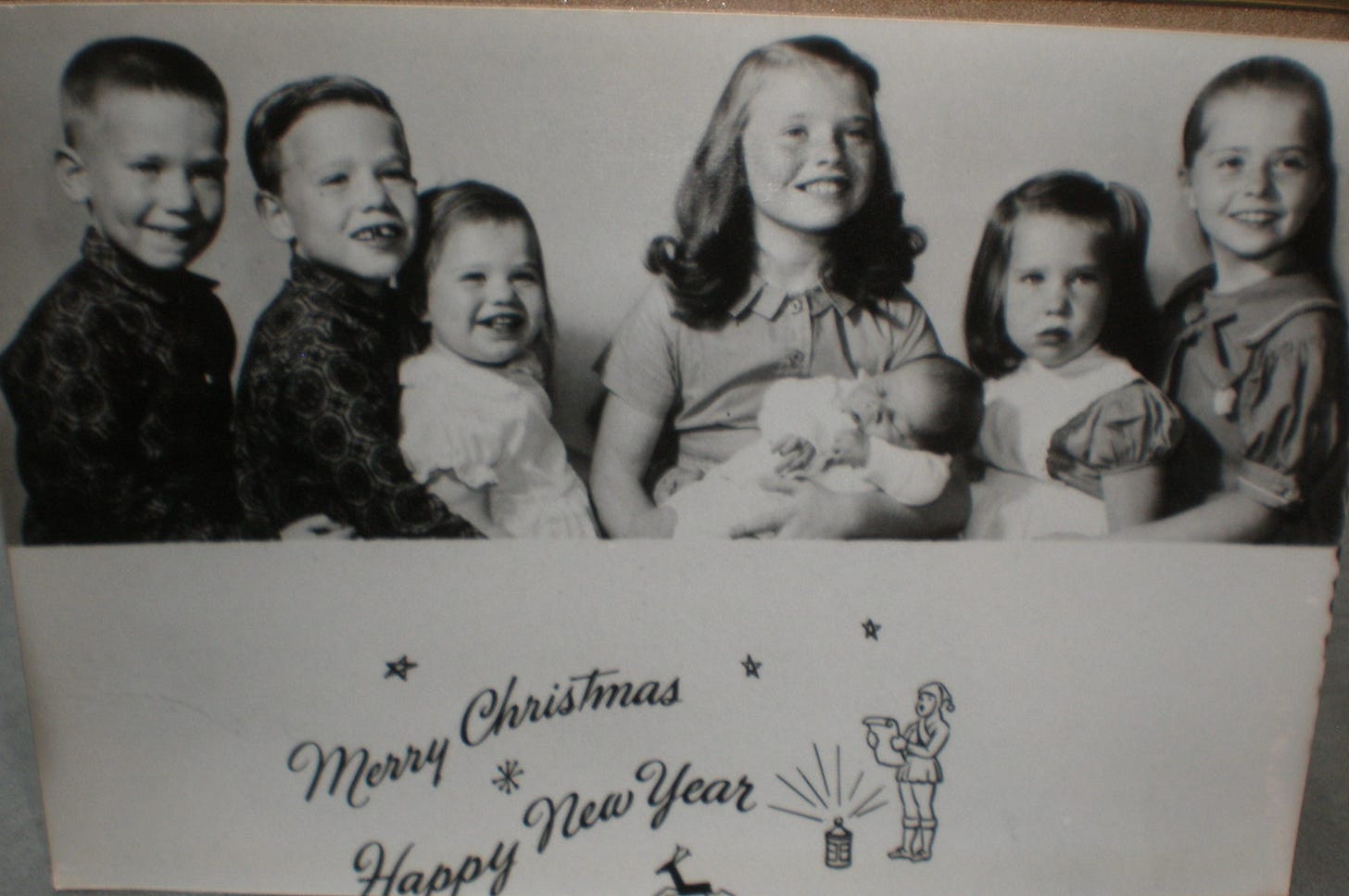
What do you like about being your age?
Most mornings, I wake up bubbling with uncaused joy. Other times, I feel the daunting complexity of life. I look to my night dreams for guidance and soon find the most creative possibilities grow in the dark. I sing and dance when I want to—a bit undone yet forgiving with growing self-love and trust.
I like that I belong to myself. For much of my life, I propelled through extremes. I acquiesced to others or puffed up like a peacock in an effort to prove myself. I reckoned with the jaws of patriarchal power-over dynamics. Now, soul nourishment comes from choosing to turn away from what doesn’t warm a creative life and from leaning into places that do. I’m quick to hug anything that isn’t a cactus and find reading people endlessly intriguing.
I see the predatorial traps set for women in a capitalist, consumer-driven culture. I’m fascinated with how we are undoing this and reimagining our necessary role in these precarious times.
The timeless wisdom of Hildegard of Bingen (1098-1179) speaks to my earliest longings and evokes my desire to be a wise elder who honors and preserves life. Her words inspire me:
"We are custodians of deep and ancient thresholds."
I’ve come to savor slowness—this is radically different from the unconscious entrapment of my earlier pattern of either/or extremes: sex and substance abstinence or all-in to blackout. My feminine body and Mother Earth align as living repositories of ancient wisdom that recover and honor birth-life-death rituals, stories, and traditions that sanctify our inherent value. This deep knowing has awakened erotic feelings of aliveness and a way for my medicine to feel authentic.
What is difficult about being your age?
The short answer would be technology. But as a woman in long-term recovery, my challenge to adapt to technical productivity reflects a larger cultural illness of disconnect and soul hunger.
The vulnerable answer takes me back to when my honeymoon with my toddler collapsed during an unforgettable weekend at age 39. During an incomplete checkup, an on-call MD decided my twins were at risk because of my age. I was hijacked by helicopter to Stanford, without my midwife, toddler, and birth supporters. Suddenly, I was forced to birth my tiny twin daughters three months premature—without informed consent or a valid medical reason.
The Hippocratic Oath demands "First, Do No Harm." But what happens when medical harm is done, and you are the injured mother left to carry the damage?
Shock. Trauma. Dissociation. Betrayal. Self-blame. Fear. Isolation. Grief—with no time to process any of it. For years, I felt I was living someone else’s nightmare, desperate for it to end as quickly as it began. Their dad became gravely ill. I was left to traverse a very dark night on my own.
Navigating the care of my adult twins with disabilities has been an unrelenting initiation. For 28 years as a single mom, I’ve run a mini-corporation in my home, constantly managing a revolving presence of multiple agencies and care providers—an emotionally impossible task.
I like that I belong to myself. For much of my life, I propelled through extremes. I acquiesced to others or puffed up like a peacock in an effort to prove myself. I reckoned with the jaws of patriarchal power-over dynamics. Now, soul nourishment comes from choosing to turn away from what doesn’t warm a creative life and from leaning into places that do.
Mothering doesn’t get easier with age—it is a real job with responsibilities that remain invisible, undervalued, and unsupported by resources essential for mental, emotional, and physical sustainability. I’ve also been shown strengths I didn’t know I had, fears I didn’t know existed, and a fierce love that somehow carries it all.
Since the pandemic, securing resources and building a stable team of helpers feels like scaling a mountain that only grows taller. At times, I feel utterly overwhelmed and forgetful, unsure if it’s burnout, age, or sheer exhaustion.
Mostly, I grieve the time and energy I don’t have to nourish relationships, dreams, and a vision for my twins’ future when I die. Edge of Grace: Fierce Awakenings to Love tells our story.
What is surprising about being your age, or different from what you expected?
Most of my life, I’ve been physically fit. It doesn’t surprise me that I’m less active now. I engage in more restful ways. A few years ago, one of my twins and I were riding our tandem bike down a slight hill when the steering and brakes froze. I slammed my foot down to stop us just nanoseconds before hitting a car. I broke my leg in three places, thankfully Abby was unharmed.
That accident was a full stop—to examine my life. I had to reteach myself how to walk, from bed to crutches to a wheelchair. I was surprised to discover how much I enjoyed doing nothing. Deep grief, loss, and for the first time—rage emptied out of me. Clean, sacred rage that felt dignified. It was necessary and freed me to see more. Until then, I had focused on doing what I needed to take care of my children. I learned what I needed to do to take care of myself: to rest and savor simple pleasures.
When I turned 55, I was bombarded with medical literature offering 'free' medications that target presumed aging ailments. I’m not against medications to treat a medical condition but aging and menopause are not illnesses. Several friends who were medical doctors walked away from Western medicine due to moral conflicts on healing or killing, such as “the goodbye program,” where older people deemed no longer useful are systematically subdued. I’m shocked by how insidious this is—and question capitalizing on vulnerable bodies.
My mother’s death at 83 still torments me. A few months before her death, she was raking her garden, walking hills, and swimming laps. Then, she had an emergency surgery for colon blockage. The surgeon assured us, “We removed it all, but she’s not the woman who used to swim laps at the Z Club.”
Navigating the care of my adult twins with disabilities has been an unrelenting initiation. For 28 years as a single mom, I’ve run a mini-corporation in my home, constantly managing a revolving presence of multiple agencies and care providers—an emotionally impossible task.
Her decline was swift. When I flew back to New York, she didn’t know who I was and had a pain patch on her leg. I asked, “Is she in pain?” No one seemed to know. I googled her medications—all eight were as strong as morphine. Horrified, I tore the patch off. Within days, she woke up, disoriented, and asked “Where am I? What happened?
“Are you in pain?” I asked.
“No,” she replied, “What’s wrong with my legs? I can’t lift them.”
I nursed her for weeks, but it was too late. She lost her mobility, her ability to read, and needed full-time care. It was heartbreaking. I was at her side when she took her last breath. Luckily, she died a conscious death, surrounded by her friends, her eight children, and her twenty-four grandchildren.
I will always cherish the opportunity to be there for her final breath. She solidified the anti-ageist in me and sparked a strong desire to gather the hard-won wisdom of elders. Before her spirit left her body, she smiled and said, “Maybe I’ll come back as one of Autumn’s children.”
What has aging given you? Taken away from you?
Aging has given me a wider lens on life. I once felt betrayed—by my sex, by the Church, by cultural expectations.
As a child I was shy, unhappy—terrified, really—about being a girl. Each year when it came time for a family photo, I would hide, “They’re not going to take me!” My God-father named me “Nancy with the laughing face.” He was determined to make me laugh. (Nancy is my given name in an Irish family of ten).
I remember cooking for the priests in exchange for a Catholic education. I was determined to know “God the father.” I created a secret ritual like a personalized mass in the rectory bathroom. I snuck the smallest holy vestment, gathered my rosaries beads, bells, and profusely petitioned God above for ascension. Until age 14, when I was raped by the football coach and left in a puddle of shame. Through conscious psychic and spiritual growth I have recovered myself as a virgin forest—whole and holy unto myself.
Every door I walked through became an opportunity to shed shame, undo sexual disorientation, and unravel internalized misogyny. It took multiple shenanigans—some fun, some kinky, all messy—to discover that my worth can’t be measured by what is done to me, but by who I am.
I am a woman with scars and wrinkles—each line tells a story of how I came to occupy myself as the salty crone. And there’s more to be revealed.
I will always cherish the opportunity to be there for my mother’s final breath. She solidified the anti-ageist in me and sparked a strong desire to gather the hard-won wisdom of elders. Before her spirit left her body, she smiled and said, “Maybe I’ll come back as one of Autumn’s children.”
How has getting older affected your sense of yourself, or your identity?
At 51, a friend introduced me to Indigenous plant medicine. I traveled deep into the Amazon jungle to drink Ayahuasca with the Shipibo. Over seven years, I apprenticed with a Shipibo family in their health care system and was invited to work alongside them. I also brought groups to Peru for learning, renewal, and a deeper connection to Earth. Early on, when I returned home from an extensive dieta, my oldest daughter—16 at the time—said, “Mom, you are different, and I want it.” I brought her with me for her 18th birthday. She went back the next year on her own, but afterward told me, “I can’t practice medicine anymore if I want to succeed in this box called ‘college.’”
Growing older—and the particulars of my life—kindled my passion to grow in the medicine ways of women. My womb is restored, my legs have roots, and my body a tree—through a deep dark feminine underground journey my soul-body is alive and well. This encapsulates the sum of my experiences, the wisdom of my mistakes, and the strength of resurrecting out of ashes.
What are some age-related milestones you are looking forward to? Or ones you “missed,” and might try to reach later, off-schedule, according to our culture and its expectations?
The twins’ birth put an end to menstruation—menopause arrived off schedule, thankfully it wasn’t lost on me. Recently, I’ve experienced the classic hallmarks: waking up drenched in sweat, mood swings, energy fluctuations—and, to my delight, surges of creativity and erotic power. I’ve discovered orgasmic pleasure within myself—as if internally marrying all of me and saying, “Baby, I’m home!”
Some days, I’m riding a black stallion or dancing wild. I think, Reel it in, but then remind myself, Life’s too short not to dance. Other days, I’m short-tempered and steaming with emotion at the state of the world.
Milestones: Now, I see interruptions as endurance initiations—life without a script—a forced reframe to uncover gifts. Of course, it’s exhausting to start creative projects and lose momentum when life flips upside down. I would love to find ways to protect my time to consistently nurture my work and relationships.
Long ago, before children, I wrote and directed liturgical dramas, and performed with a few dance troupes. I was passionate to bring diverse healing stories to life—to act and dance to raise awareness. Out of necessity, I stepped out of a life of adapting to the house of the fathers (dominant culture). I miss the old ways that come to me in dreams and hold questions: “Who was a woman before she was exiled from herself to adapt to a male centric way of being, thinking, existing? Who is she before performance survival?”
More and more of us are remembering the old ways, especially through the powerful passage of menopause. I’m enlivened by reframing old myths that support women to recover true power for their Crone years. Rather than be dismissed, I want older women to feel empowered to do what they want. We’ve earned it and carry wisdom to create a future that is more loving for all.
And I want to paint again—and sing in a gospel choir.
What has been your favorite age so far, and why? Would you go back to this age if you could?
If I could go back, I’d be a perpetual 39—with twins chugging along just fine. I’d flee the helicopter transport and not step foot in the industrial medical complex. I’d trust my body to birth my babies, regardless of my age or what diploma-fed men in white coats decided.
Perhaps my twins would be as healthy as their older sister—playing all their days, riding bikes, dancing… I’d hear Libby’s voice, and she’d see my face. Perhaps my family wouldn’t have been shattered by grief and loss, over and over again.
And yet—this initiation fiercely strengthened my resolve to consciously reclaim my body-soul life, to understand patriarchy as a “power-over” dynamic—not a war against male bodies, and to cherish “difference.” Our heroine’s journey has carved out four mighty beings: Libby with her contagious laughter; the sensitive, unstoppable Abby; and Autumn, a wise talented beacon of justice. All three fill me with awe.
Like countless women—weaponized—who carry the shame and blame for crimes committed against us, I think of Gisèle Pelicot, who said, “I’ve decided not to be ashamed, I’ve done nothing wrong.” Nor have my children. We are waking up—questioning the lies that have controlled women for generations. And we must stop blaming women for what malignant men do to them.
More and more of us are remembering the old ways, especially through the powerful passage of menopause. I’m enlivened by reframing old myths that support women to recover true power for their Crone years. Rather than be dismissed, I want older women to feel empowered to do what they want. We’ve earned it and carry wisdom to create a future that is more loving for all.
Is there someone who is older than you, who makes growing older inspiring to you? Who is your aging idol and why?
There are many! Clarissa Pinkola Estés, Audre Lorde, Paula Gunn Allen, bell hooks, Gerda Lerner, Toni Morrison, Isabel Allende, Betty Friedan, Riane Eisler, Marion Woodman, Margaret Atwood... Each has brought brilliant insights.
On Substack,
—she’s 83. She’s funny, wise, and perfectly poised to tell you to go to hell if you piss her off. She’s a gifted writer, a brilliant storyteller, and a genuinely good human being. Not a mean bone in her body, but plenty of funny ones. I’m honored to call her friend. She’s also made a good friend in my Abby, and I love seeing them together.What aging-related adjustments have you recently made, style-wise, beauty-wise, health-wise?
Recently, I had to replace several crowns, and soon, I’ll have the screws in my knee removed. At 62, I spotted my first white hair—on my eyebrow. Now, beautiful silver wisps are appearing. I’m okay with natural, messy, and imperfect—women get to choose what we do with our bodies.
Regular saunas, argan oil for skin care, and far less makeup than I wore at 50 keep things simple. Headstands, cold plunges, nature, good food, dreamwork, cacao, writing, and circling with women nurture my soul. Rest, tears, and hearty belly laughs are my elixirs.
What’s an aging-related adjustment you refuse to make, and why?
I feel our culture is beginning to get the memo: women are not half-baked, we are juiced for life—some of us are just getting started. Make way for the crones—the wise elders. We need us. After a period of restful re-evaluation, I refuse to let the challenges in my family life stop me—or them—from living fully.
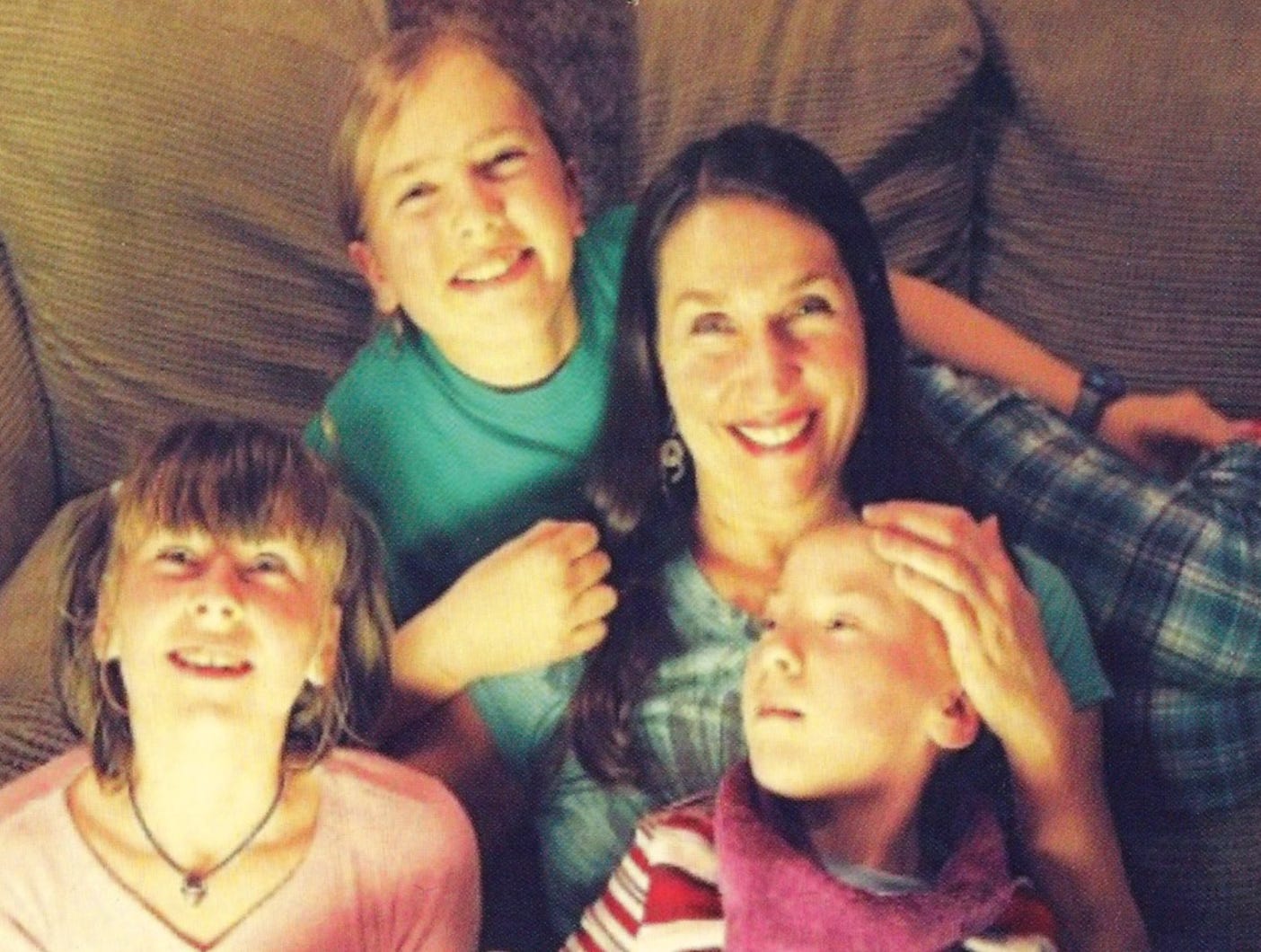
What turn of events had the biggest impact on your life? What took your life in a different direction, for better or worse?
I think I’ve already answered this: the ongoing journey of disentangling myself from a patriarchal culture that harms everyone, shedding internalized misogyny, and slowing down to reclaim feminine love—the sacred mystery of being a woman.
What is your number one regret in life? If you could do it all over again, what is the biggest thing you’d do differently?
I’ve had regrets for unconscious behavior. If I’d been more resourced, I would have protected my babies at birth. I would have collected more stories from my grandparents to learn about their grandparents—the old ways, struggles, joys, and wisdom—to strengthen my Irish Celtic roots. I’d savor more tender solitude, humor, and slowness.
I feel our culture is beginning to get the memo: women are not half-baked, we are juiced for life—some of us are just getting started. Make way for the crones—the wise elders. We need us. After a period of restful re-evaluation, I refuse to let the challenges in my family life stop me—or them—from living fully.
What is high up on your “bucket list?” What do you hope to achieve, attain, or plain enjoy before you die?
Building a crone sisterhood—joining with wise women to deconstruct and reframe myths—to remember and lead collaboratively.
I’m at the cusp of my life’s work—it’s both slow and urgent—blending archetypal psychology, mythology, my Indigenous training with my Irish Celtic heritage. I hope to organize my work into a proper book—healing stories from decades of learning in our sacred hoops. An apprenticeship is underway. I envision a retreat/sanctuary for this evolving body of work—a sustainable eco-village inclusive of my family with animals and bounty harvests. Before I die, I want to ensure safety for my girls.
Seven months ago, my daughter Abby nudged me to start
on Substack. Writing weekly has reignited my passion, fueled by connection and incredible mentors. Maybe I’ll overcome my fear of public speaking and perform stories again, even a Ted Talk.I toy with the idea of traveling solo on wheels, to soak up the myths and ways of medicine women in different cultures—like the Mayans and Aztecs of Central America.
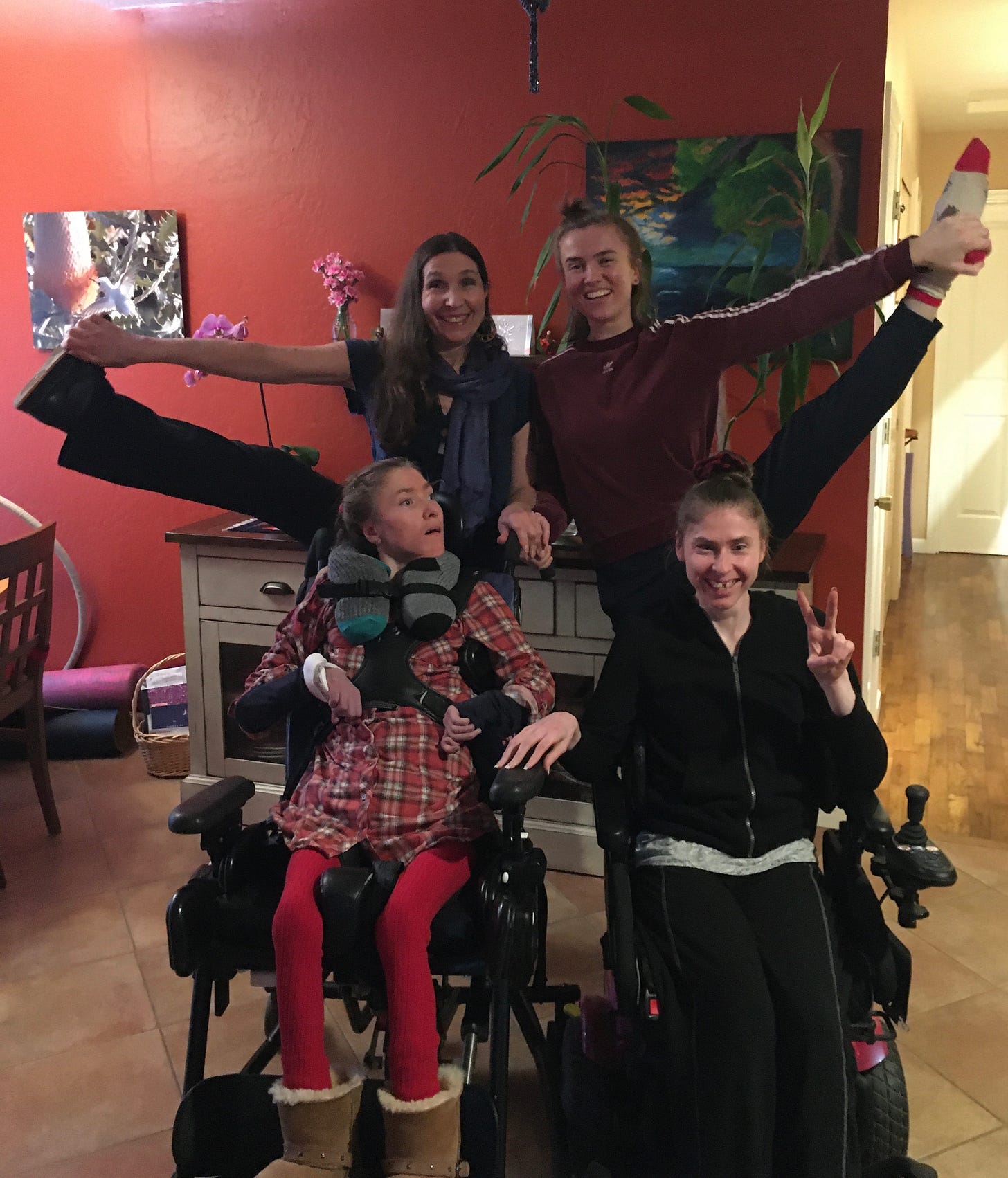
Is there a piece of advice you were given, that you live by? If so, what was it, and who offered it to you?
“If it doesn’t bring warmth to your life and creativity, walk the other way…” “You will not discover who you are in the house of the patriarchal fathers.” “Pay attention to your dreams, this will nourish your soul and make the unconscious conscious.” This advice came from Eunice, my first therapist and soul friend who still guides my life.
“As Curanderas we learn that we don’t know more, we know less, then true healing occurs.”—My Maestro Ernesto Garcia. Conceptual linear head knowledge falls off—clear seeing, wholeness happens. “When a medicine man or woman dies, an entire library goes up in flames.”
Helen Reddy’s 1972 hit “I Am Woman” became the feminist anthem of the decade, a rallying cry that still fuels women today. It reminds us to keep talking, share our stories, join together, and dismantle ideas of lack that breed competition.
I’ve had regrets for unconscious behavior. If I’d been more resourced, I would have protected my babies at birth. I would have collected more stories from my grandparents to learn about their grandparents—the old ways, struggles, joys, and wisdom—to strengthen my Irish Celtic roots. I’d savor more tender solitude, humor, and slowness.
What are your plans for your body when you’re done using it? Burial? Cremation? Body Farm? Other? And what do you expect to happen to your “soul” or “spirit” after you die?
Cremation—a full return to Mother Nature. I imagine my soul will rejoin the universal soul, among ancestors, until it’s time for a new birth-life-death adventure.
What’s your philosophy on celebrating birthdays as an adult? How do you celebrate yours?
Listening for what the person wants, with a few lighthearted surprises thrown in. My last birthday began a new ritual: an ice-cold ocean swim. Otherwise, a simple dinner, pie (we’re not big on cake), and a few close friends. At 50, we threw a dance party. I embarrassed all my kids—in true Prajna style!





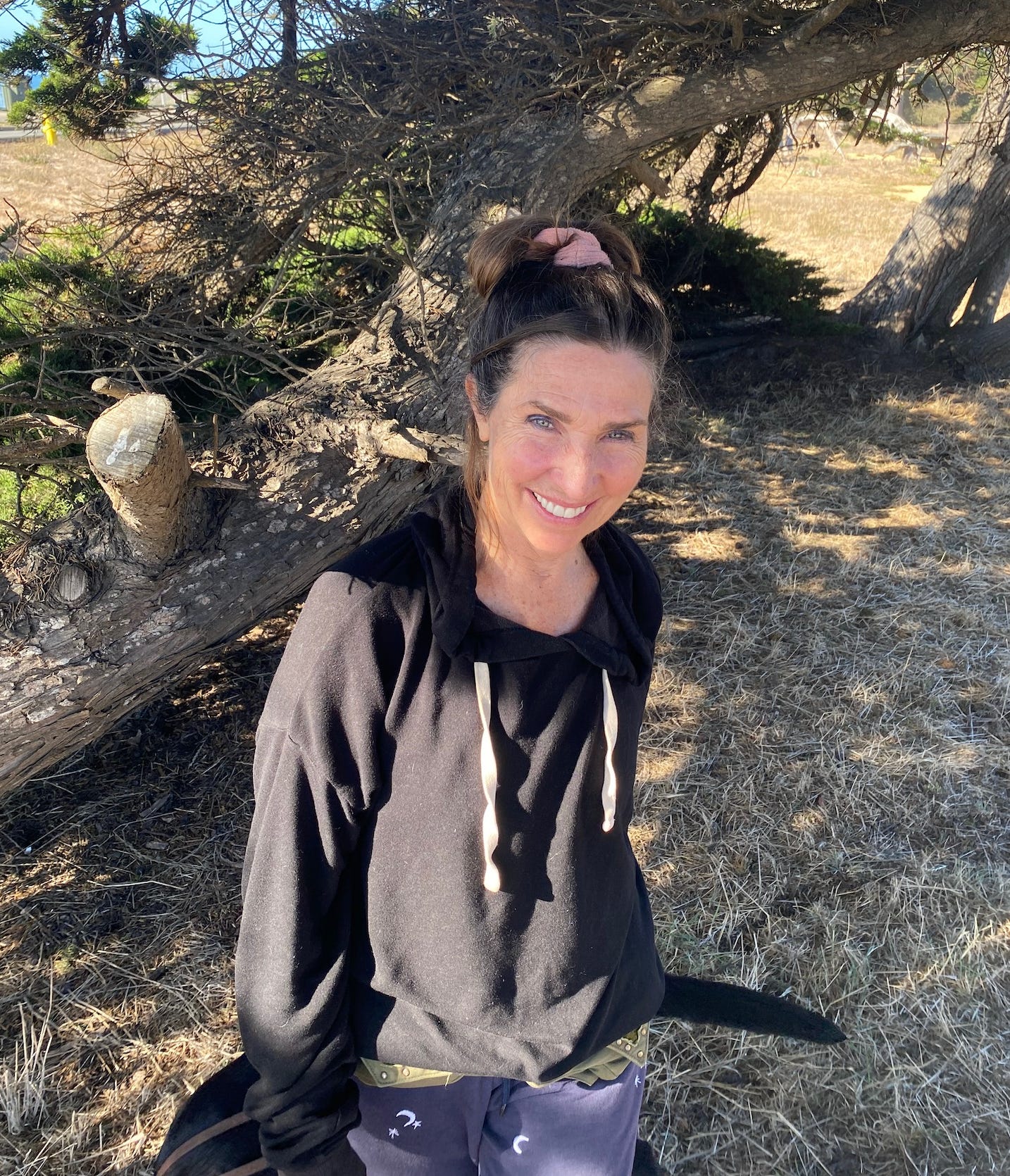
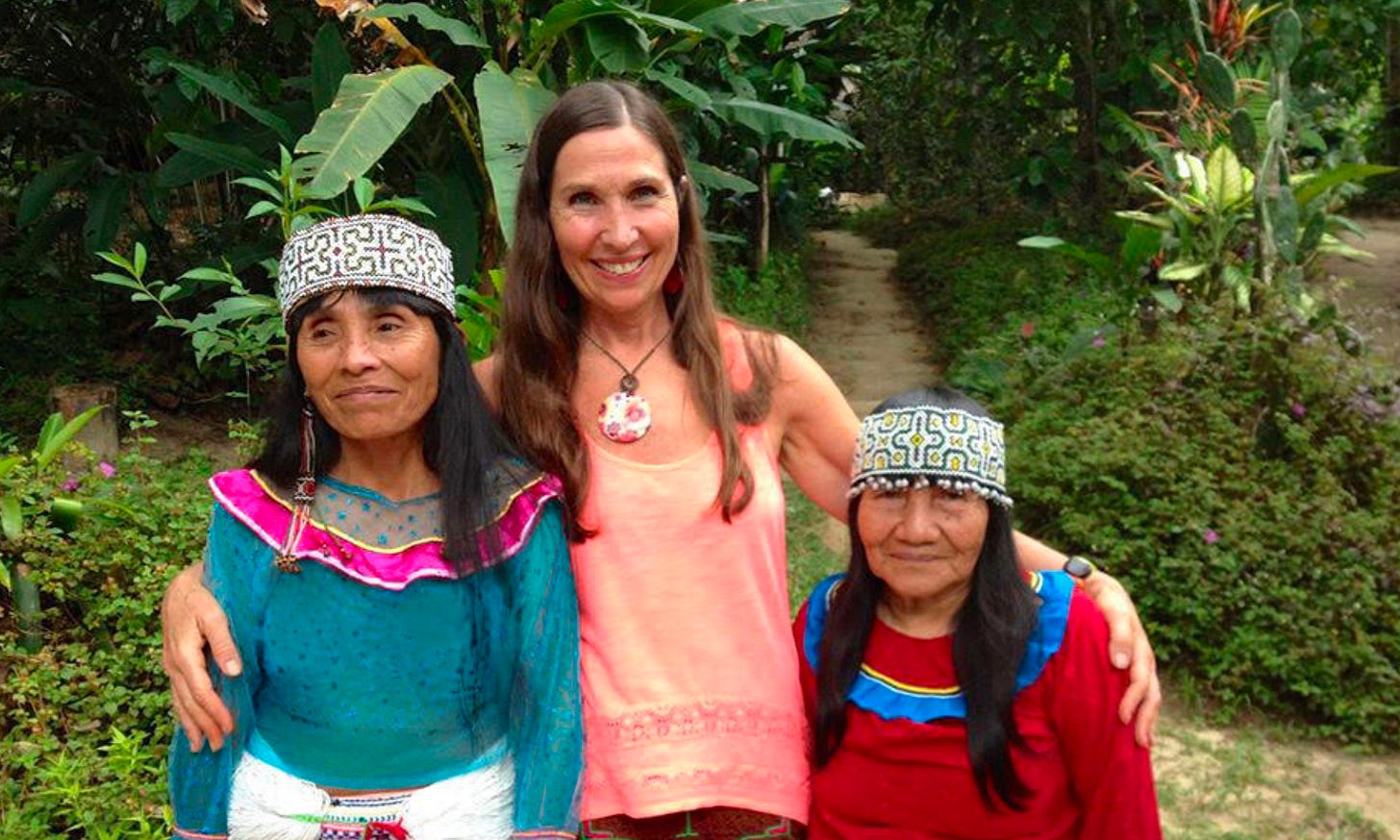
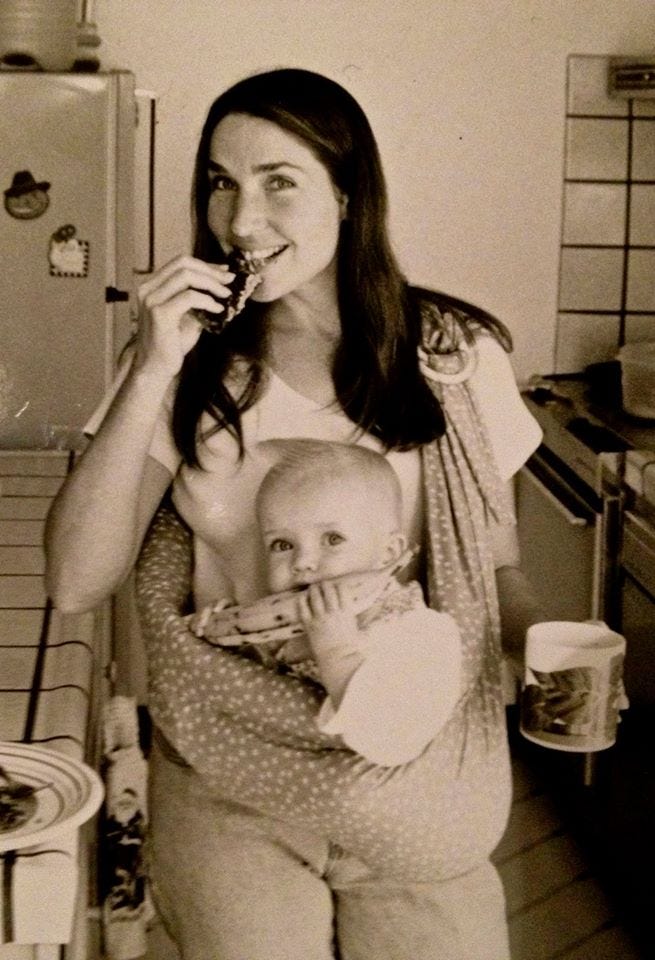
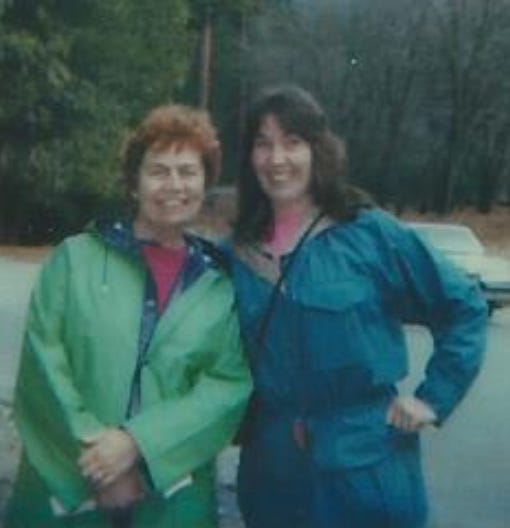
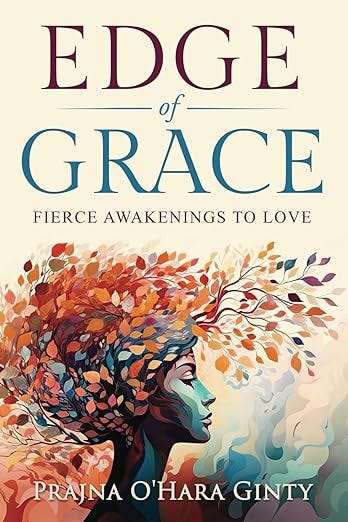
You find the best people for these interviews!
Sing it from the rafters: "Aging and menopause are not illnesses."